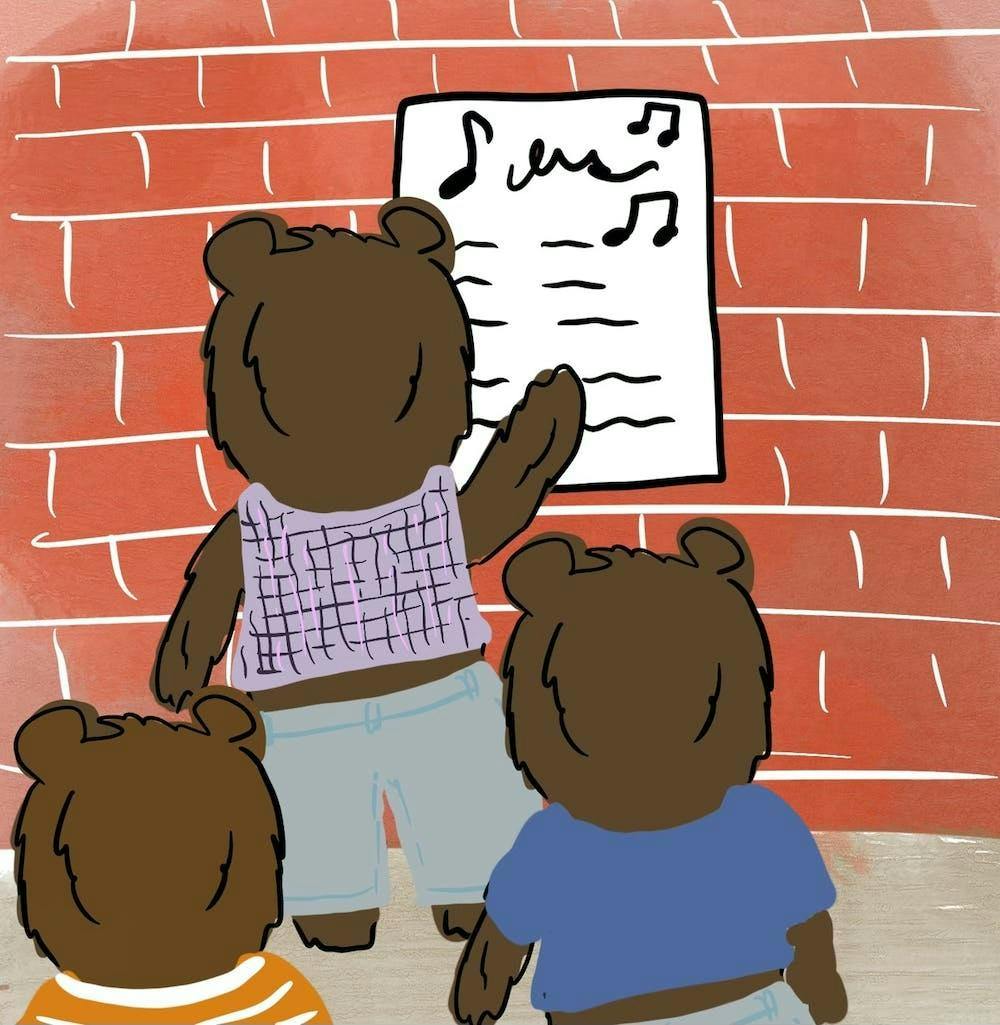In an Aug. 31 email, the Student Activities Office announced to some student groups that SAO will no longer make exceptions to their “University Breaks” policy, which prohibits student group meetings and events during breaks. In the past, these exceptions had allowed some activities to occur on or near campus during University break periods such as winter or summer break and the time between finals and commencement.
“This means that student organization performances and events such as Commencement concerts (and) winter dance camp … will no longer be permitted as exceptions to our scheduling policies,” according to the email, which was shared with The Herald.
The decision — which impacts a cappella and dance groups that use University space to rehearse during breaks — was made without any student involvement, multiple groups told The Herald.
SAO employees informally mentioned this change in a conversation discussing the logistics of Senior Week last school year, according to Elsa Block ’24, a leader of Brown’s Intergalactic Community of A Cappella. IGCAC is comprised of nine of the University’s a cappella groups that collectively run auditions.
Some a capella troupes stay after finals conclude through Senior Week to bond as a team and rehearse for their senior concerts — events celebrating senior members that usually happen the weekend before commencement.
Upon hearing about the possible change, Block said that she expressed her willingness to participate in the decision-making conversations as an IGCAC representative, though SAO did not reach out to solicit student opinions on the change, she said.
According to Joie Steele, senior associate dean and director of student activities, SAO provided guidelines to and asked for plans from groups that had historically received exceptions to the breaks policy. “Most groups could not demonstrate that they were able to provide the funding needed for members’ housing and food,” she wrote in an email to The Herald.
In May, SAO informed organizations receiving exceptions for spring that “Spring 2023 may be the last year they would receive an exception,” Steele wrote.
Multiple dance group leaders have told The Herald that they were not aware of this decision until the Aug. 31 email. The decision means that dance camp — when dance groups return to campus for full-day rehearsals a week before the spring semester starts — can no longer happen, they said.
“The students who coordinated the dance group request for exception last January were told that although we were granting the exception that year, we were not guaranteeing that it would be made in the future,” Steele added.
SAO’s August email noted that the office intended to inform students “as early as possible” so that they “are aware and can plan accordingly for the upcoming year” — though two students told The Herald that they still felt blindsided.
According to Mezcla Co-Dance Director Camila Murillo ’26, the group’s plans facing the cancellation of dance camp “are very short-term solutions” because of when they heard about the decision.
“With the policy being known to us five days before school start(ed), we couldn’t plan over the summer,” said Fusion Dance Company Manager Isabel Lukas ’24.
“We didn’t want to rush into a decision and wanted to … evaluate the past years and current challenges,” Steele wrote. “We wanted to make sure that groups had at least a full semester of notice.” Steele added that the Aug. 31 email kept the office’s promise to inform student groups about the policy in August.
Cited reasoning
In their email to student groups, SAO cited five reasons for their decision to change the policy: housing, food, funding, equity and logistical and staffing challenges.
They wrote that each member has to pay a “per-person, per-night fee” to stay on campus, and most groups could not cover the expense last year. SAO added that the University’s Office of Residential Life needs students to leave their rooms to have time to prepare rooms for Commencement and summer housing.
Some groups also experienced difficulty covering food costs for all of their members last year, according to the email. SAO noted that “it would not be equitable” to allow groups that had conducted earlier fundraising to stay when most “do not have resources to do so.” Additionally, the email stated that UFB funding cannot be “used for events before the start of the semester or after the end of finals.”
“Students should not have to pay out of pocket” for housing and food in order to participate in a school group event, the office’s email read.
Additionally, SAO stressed that with roughly 450 student groups, the office cannot grant “all” or “even most” organizations exceptions — “and it is not equitable to make exceptions for some but not for others.”
Block disagreed: “It’s not like … all 450 student groups (are) asking to stay late,” she said, noting that the change will mean only groups able to secure University departmental sponsorship will be able to stay.
Last, the email noted that since University departments like Media Services, the Department of Public Safety and Event Staff Services “are already stretched thin” during Commencement. Permitting groups to perform “often resulted in services not being available, or inadequate staffing which posed safety and security risks.”
Late notice for Senior Week
“Always and forever, commencement concerts have been a part of what goes into (Senior Week) and weekend, and it has never been a problem,” Block said.
IGCAC already had trouble organizing Senior Week performances last academic year due to late notice from SAO, Block said.
In March, Block received a list of information that groups needed to provide in preparation for Senior Week from the group’s SAO advisor, she said. On the list was how each member would cover housing and food, given that dorms close after finals.
Block noted that she expected the flat reduced housing rate for IGCAC members — roughly $40 a week — and an option to extend meal plans which IGCAC had received in previous years. But in February 2023, the University Resources Committee directed that ResLife would charge $45 daily for extended housing as well as summer and winter housing, which was communicated to students in April, Senior Associate Dean and Senior Director of Residential Life Brenda Ice wrote in an email to The Herald.
When Block heard back from ResLife and Dining Services last semester, she was told that the same arrangement would not apply.
“Break period housing is offered to students with a University purpose (i.e. employment, research, internship) of which they are sponsored by a department and/or faculty member,” Ice wrote. “If a student is not sponsored by a department or faculty member, they are responsible for the daily rate of $45 per night.”
“In addition to fall and spring meal plans, Dining Services offers summer and winter meal plan options,” wrote George Barboza, vice president for dining programs, in an email to The Herald. “Meal plans are typically funded either by the students themselves or by departments within the University sponsoring specific groups or purposes.”
Block said that finding out about the changes in March created chaos for IGCAC.
“Senior Week was coming up and I was scrambling, every group was scrambling,” Block said.
SAO did not respond regarding this comment.
According to Aidan LeBlanc ’25, music director of The Brown Derbies, the group was still figuring out logistics until the week before Senior Week, when they ended up receiving sponsorship from the University’s Office of Philanthropic Strategies and Planned Giving. But not every group can secure departmental sponsorship, Block said.
Adapting to loss of dance camp, senior week
Fusion Dance Company loses about 100 hours of rehearsal time without dance camp, Lukas told The Herald. To make up for lost time, Lukas said the group is starting rehearsals much earlier than usual.
Dance camp incorporated rehearsals for “almost half of (Mezcla’s) show,” Murillo said, which now has to be accommodated in rehearsals “way sooner” during the fall and the beginning of spring semester, said Murillo and Briannah Cook ’24, co-publicity director of Mezcla. Kathryn Lee ’24, co-director of Impulse Dance Company, said the same is true for her group’s spring show.
The revised rehearsal schedule “demands way more energy than it should,” Murillo said.
And for a cappella groups, Senior Week might be their “most significant tradition,” Block said. “It’s been (around) long enough that I feel like most people won’t even have the answer” of how long it has existed.
“My best memories from maybe all of (my time at) Brown have been during Senior Week,” LeBlanc said.

Kathy Wang was the senior editor of community of The Brown Daily Herald's 134th Editorial Board. She previously covered student government and international student life as a University News editor. When she's not at The Herald, you can find her watching cooking videos or writing creative nonfiction.





